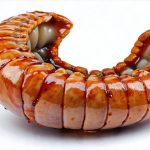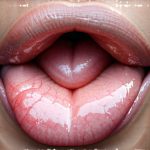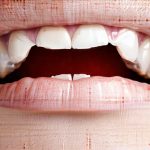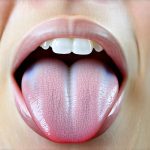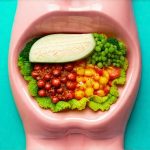Waking up with a persistent bad taste in your mouth is a surprisingly common experience, often described as sour, bitter, metallic, or simply unpleasant. While many factors can contribute to this morning malaise – from poor oral hygiene to dehydration – one frequently overlooked culprit is Gastroesophageal Reflux Disease (GERD). GERD isn’t just about heartburn; it’s a complex condition with a wide range of symptoms that extend beyond the typical chest discomfort, and that distinctive taste in your mouth can be a significant indicator. Understanding the liver’s role may also play a part in overall digestive health. Understanding the connection between these two seemingly disparate issues – nighttime acid reflux and morning bad breath/taste – is crucial for identifying potential underlying health concerns and seeking appropriate support.
The reason this link isn’t always immediately apparent lies in the often-silent nature of nighttime GERD. During the day, gravity helps keep stomach acid where it belongs. However, when we lie down, particularly after a meal, it becomes much easier for acidic contents to flow back up into the esophagus and even as far as the mouth. This reflux can occur without any noticeable heartburn, leading individuals to remain unaware of the underlying problem while still experiencing the unpleasant consequences – including that unwelcome taste first thing in the morning. It’s important to remember that experiencing occasional reflux doesn’t necessarily mean you have GERD; it’s the chronic and frequent nature of the symptoms that warrants further investigation. Are gums and thickeners in your diet potentially contributing to digestive upset?
Understanding GERD and its Nocturnal Manifestations
Gastroesophageal Reflux Disease (GERD) is characterized by the persistent backflow of stomach acid into the esophagus, irritating its lining. This happens when the lower esophageal sphincter (LES), a muscular ring at the bottom of the esophagus, doesn’t close properly or weakens. Numerous factors can contribute to LES dysfunction including: diet choices, obesity, smoking, pregnancy, and certain medications. While heartburn is the most well-known symptom, GERD often presents in more subtle ways, especially during sleep. This is partly because our bodies are less efficient at clearing acid from the esophagus when we’re lying down. Understanding the role of bile can help understand how digestion works, and if things are going smoothly.
The nocturnal aspect of GERD is particularly relevant to bad taste in the mouth. When stomach acid reaches the back of the throat and mouth overnight, it can leave a lingering sour or bitter flavor. It isn’t just the acid itself causing the issue; the digestive enzymes present in refluxed material also contribute to the unpleasant taste. Furthermore, even small amounts of regurgitated stomach contents can disrupt the oral microbiome – the delicate balance of bacteria in our mouths – leading to further changes in taste perception and potentially contributing to bad breath. This is why a seemingly unrelated symptom like morning breath could be a sign of something more systemic.
It’s vital to differentiate between occasional acid reflux and GERD. Most people experience heartburn now and then, often after eating spicy or fatty foods. These isolated incidents are usually nothing to worry about. However, if you consistently experience heartburn – even without noticeable acid reflux – combined with other symptoms like a chronic bad taste in the mouth, difficulty swallowing (dysphagia), or persistent cough, it’s time to consult a healthcare professional. Ignoring these signs can lead to more serious complications over time, such as esophagitis (inflammation of the esophagus) and Barrett’s esophagus, a precancerous condition. Are digestive symptoms always worse in the morning?
Identifying Contributing Factors Beyond GERD
While GERD is often a primary cause, other factors can exacerbate or mimic the sensation of bad taste in the mouth. It’s crucial to consider these possibilities to ensure a comprehensive understanding of your symptoms. – Dry Mouth (Xerostomia): Saliva helps neutralize acids and cleanse the mouth. Reduced saliva production due to medication side effects, dehydration, or medical conditions can worsen the impact of reflux. – Poor Oral Hygiene: Inadequate brushing and flossing allow bacteria to thrive, contributing to bad breath and altered taste perception. – Dental Issues: Cavities, gum disease, and oral infections can all cause unpleasant tastes. – Medications: Certain medications, including antibiotics and blood pressure drugs, can alter taste buds or decrease saliva production.
One often overlooked contributor is dietary habits. Consuming large meals close to bedtime increases the risk of reflux, as does eating trigger foods such as: caffeine, alcohol, chocolate, fatty foods, spicy foods, and acidic fruits (citrus, tomatoes). Smoking also weakens the LES and increases acid production, making it a significant risk factor for GERD and related symptoms. Therefore, lifestyle modifications can often play a crucial role in managing these issues alongside any medical interventions. It’s not always about eliminating entire food groups; it’s more about mindful eating and timing your meals strategically. The connection between GERD and hiccups is often overlooked, too!
Finally, it is important to consider other underlying health conditions that might contribute to a bad taste. Conditions like diabetes, kidney disease, liver problems, or even vitamin deficiencies can sometimes manifest as altered taste perception or persistent bad breath. A thorough medical evaluation is essential for accurately diagnosing the root cause of your symptoms and developing an appropriate treatment plan.
Diagnostic Approaches & When to Seek Medical Attention
Pinpointing GERD as the source of a morning bad taste often requires a multi-faceted approach. Your doctor may start with a detailed review of your symptoms, including their frequency, severity, and timing. They’ll likely inquire about your dietary habits, lifestyle factors (smoking, alcohol consumption), and any medications you’re taking.
Several diagnostic tests can help confirm GERD and rule out other possibilities: – Endoscopy: This involves inserting a thin, flexible tube with a camera into the esophagus to visualize its lining and identify any inflammation or damage. – pH Monitoring: This measures the amount of acid in the esophagus over a 24-hour period, providing valuable information about reflux episodes. There are both catheter-based (more accurate) and wireless capsule-based systems. – Esophageal Manometry: This assesses the function of the LES and the muscles of the esophagus, helping to identify any abnormalities that may be contributing to reflux.
It’s crucial to seek medical attention if you experience any of the following: – Frequent or severe heartburn (more than twice a week) – Difficulty swallowing – Persistent cough – Chest pain – Unexplained weight loss – Symptoms that don’t improve with lifestyle changes and over-the-counter remedies. Don’t self-diagnose; accurate diagnosis from a healthcare professional is paramount for effective management and preventing potential complications.
Lifestyle Modifications & Potential Treatments
Managing GERD and mitigating the associated bad taste in your mouth often involves a combination of lifestyle modifications and, in some cases, medical treatment. – Dietary Changes: Avoid trigger foods, eat smaller, more frequent meals, and avoid eating close to bedtime. – Elevate Head of Bed: Raising the head of your bed by 6-8 inches can help prevent acid from flowing back up into the esophagus during sleep. – Weight Management: Losing weight if you are overweight or obese can reduce pressure on the stomach and LES. – Quit Smoking: Smoking weakens the LES and increases acid production.
Over-the-counter remedies like antacids can provide temporary relief, but they don’t address the underlying cause of GERD. Histamine-2 receptor antagonists (H2RAs) and proton pump inhibitors (PPIs) are stronger medications that reduce stomach acid production. PPIs are typically more effective but should be used under a doctor’s supervision due to potential long-term side effects. In some cases, surgery may be considered as a last resort for severe GERD that doesn’t respond to other treatments. Remember: never self-medicate or adjust your medication dosage without consulting your healthcare provider. They can assess your individual situation and recommend the most appropriate course of action. A holistic approach—combining lifestyle changes, medical intervention when necessary, and consistent monitoring—is key to effectively managing GERD and restoring a pleasant start to your mornings. Chewing gum’s role in managing GERD is also worth considering for some patients.


